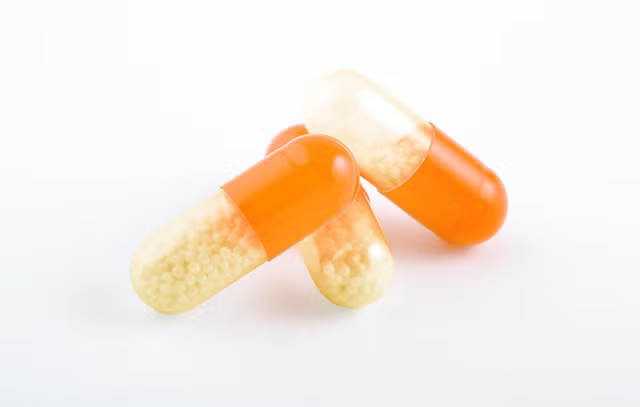In the past, physicians used to prescribe amphetamines for weight reduction purposes. However, due to the demonstrated addictive nature of these medications, such practices were prohibited by law. In the present age, Adderall weight loss guide, typically prescribed for Attention Deficit Hyperactivity Disorder (ADHD), is sometimes used non-medically to aid in weight loss. Adderall, which contains amphetamine and dextroamphetamine, functions by suppressing hunger in a manner similar to traditional amphetamines. Despite the fact that no doctor would prescribe the medication for weight loss purposes today, some individuals resort to the “Adderall diet” or “fast diet” as a means to shed pounds.
Use of Adderall and ADHD
Adderall is commonly prescribed by doctors to individuals diagnosed with attention-deficit/hyperactivity disorder (ADHD), a prevalent neurobehavioral condition often identified in childhood. ADHD is characterized by patterns of inattention, hyperactivity, and impulsivity, which can significantly impair an individual’s ability to focus and manage their behavior. This chronic condition persists throughout a person’s lifetime, and while symptoms may change over time, they can continue to impact various aspects of an adult’s life, including relationships, health, career, and finances.
However, in addition to its medical use, many individuals also use Adderall for non-medical purposes. Some obtain it from friends or family members with prescriptions, while others purchase it from illicit sources such as street markets. This non-prescribed use of Adderall poses significant risks and can lead to harmful consequences for individuals who misuse the medication.
Adderall Weight Loss Guide
Eating disorders are prevalent worldwide, often driven by societal pressures and the constant scrutiny of body image. Women, in particular, are disproportionately affected by these issues, contributing to the booming diet and exercise industries promising quick weight loss solutions. In the pursuit of rapid weight reduction, individuals seek shortcuts, turning to pills instead of implementing dietary changes or engaging in physical activity. One such shortcut gaining popularity is the use of Adderall for weight loss, despite its associated risks and adverse effects.
- Adderall, a medication typically prescribed for Attention Deficit Hyperactivity Disorder (ADHD), is increasingly being used off-label for weight loss purposes.
- The drug works by increasing dopamine signaling in the brain, leading to feelings of pleasure and heightened energy levels.
- One of the side effects of Adderall is appetite suppression, which can result in reduced food intake and subsequent weight loss.
- Individuals taking Adderall for ADHD may experience weight loss unintentionally due to its appetite-suppressing effects.
- However, the non-medical use of Adderall for weight loss carries significant risks, including the potential for dependence and addiction.
- It is crucial for individuals considering the use of Adderall for weight loss to weigh the short-term benefits against the long-term consequences and to seek guidance from healthcare professionals.
Adderall Weight Loss Stories:
Numerous Adderall weight loss stories are present. Some of them are as follow:
Adderall Weight Loss Story: 1
In preparation for graduation from college, I developed an eating disorder identified as anorexia nervosa, aiming to present myself as vulnerable upon entering the professional world. Encountering Adderall, a prescription medication, seemed like a fortunate turn, as it effectively rendered basic human needs such as eating and sleeping obsolete.
As I experienced rapid weight loss due to self-imposed starvation coupled with obsessive exercise, I turned to Adderall for assistance, believing it to be the solution to my struggles. Despite initial success, the consequences were severe: significant hair loss, the growth of thin white hair across my body, and the cessation of menstruation for about a year and a half.
Reflecting on my journey, I now recognize the dangers of Adderall misuse and question the legitimacy of conditions like ADD and ADHD, seeing them as pharmaceutical constructs aimed at pathologizing creativity. This experience has led me to reject such narratives and approach health and wellness with a more critical perspective.
Adderall Weight Loss Story: 2
The individual in the narrative shares a journey of being diagnosed with ADHD at the age of 6, receiving sporadic medication during youth and adolescence due to financial constraints, and subsequently going a decade without treatment. Recently, their weight reduction doctor attributed their poor impulse management and difficulty in maintaining healthy habits to ADHD.
Since commencing daily intake of Adderall XR, the individual reports significant life improvements. They note better home management, increased productivity, and most notably, a shift towards healthier dietary choices. Instead of opting for fast food, they prioritize nutritious home-cooked meals, finding motivation to cook and prepare wholesome foods even for work. Additionally, they highlight a newfound inclination towards physical activity, albeit not as consistent as desired.
Emphasizing that Adderall is not a diet medication, the individual underscores the importance of lifestyle changes over appetite suppression in achieving sustainable weight loss goals.
Conclusion
It is concluded that when Adderall tablets are taken as directed, they gradually and steadily provide a therapeutic impact on the brain. The effects are bigger and more rapid when used in higher dosages and when people abuse them by taking them through multiple ways, which is thought to raise the risk of addiction. Drug abuse can result from malnutrition, aggression, psychosis, cardiac issues, and stroke. That’s why if you’re worried about your weight, Adderall is not the right solution you’re searching for.
Medical Disclaimer: All the content available on the website is just for informational purposes. It’s not a substitute for any Professional advice.
Disclaimer: The content on Wellness Derive is for informational purposes only and not a substitute for professional medical advice, diagnosis, or treatment. Always consult a healthcare provider for medical concerns.



